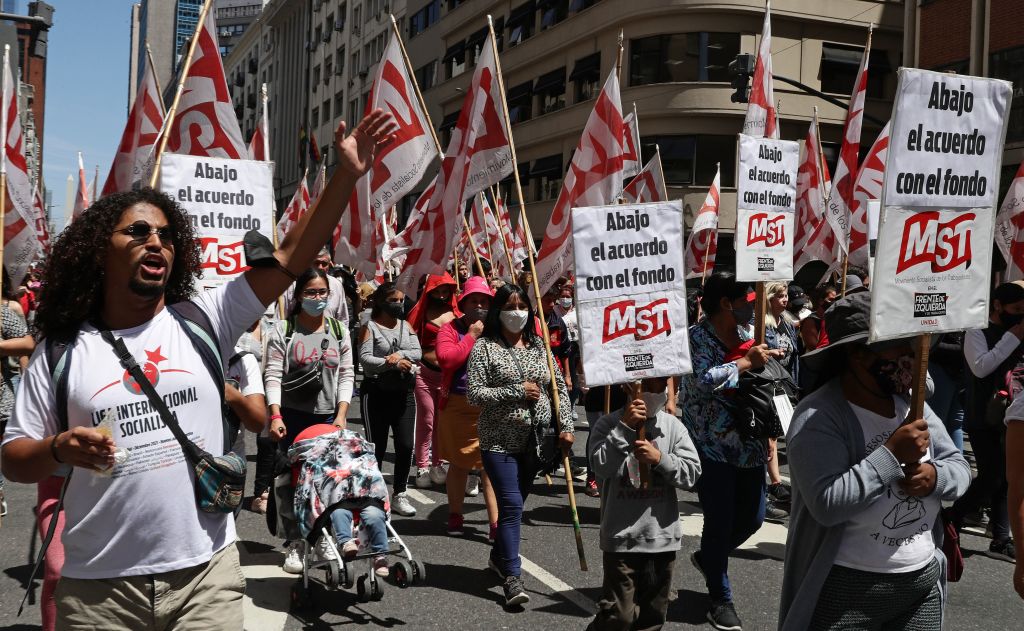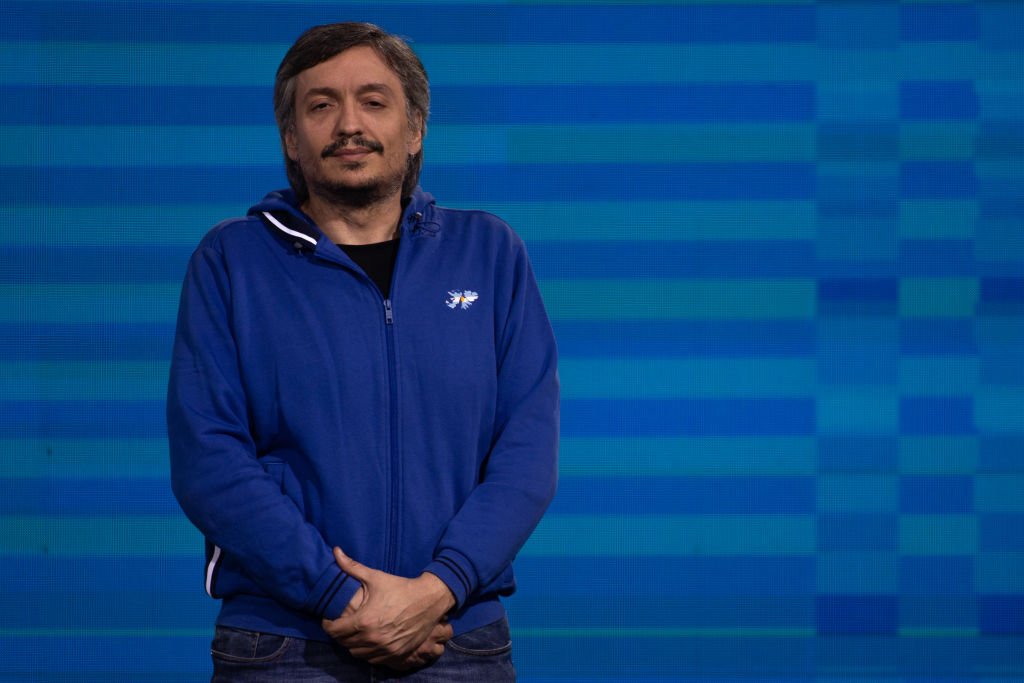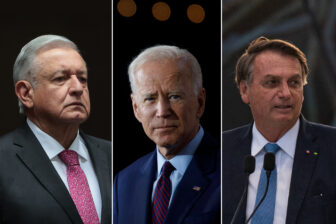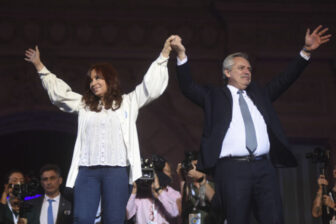BUENOS AIRES – Peronism has a curious epistolary history. The movement’s founder, Juan Domingo Perón, exchanged letters with his supporters while in exile, skillfully playing rival ideological factions against each other and setting the stage for his eventual return to Argentina’s presidency in the 1970s. Now, decades later, former president Cristina Fernández de Kirchner has taken to penning explosive, public criticisms of the current government, in which she also serves as vice president.
The habit seems to run in the Kirchner family. Cristina Kirchner’s son, lawmaker Máximo Kirchner resigned on January 31 as leader of the governing Frente de Todos coalition in the House of Deputies, with a letter vehemently dissenting from the Fernández administration’s new agreement to postpone payments to the International Monetary Fund (IMF). His anger appears genuine, but it could also reflect a calculated move aimed at retaining support among the Kirchners’ hardcore base.
The agreement, painstakingly hammered out over two years by government negotiators, aims to restructure repayments on $44.5 billion in debt inherited from the previous Macri administration. Granted in 2018, the bailout was the largest in IMF history, and it went sour with record speed, too. Its major legacy has been to hamstring the Fernández administration’s response to the country’s simmering economic crisis, which has also been compounded by pandemic woes.
Fernández saw news of a deal last week as heralding the removal of a “rope” from around the nation’s neck, and many saw the IMF agreement, which is relatively amenable to the Argentine government’s position, as a major achievement for the administration.
Máximo Kirchner’s departure thus marks a rupture in the ruling Frente de Todos coalition at precisely the moment the government is seeking unity in touting its accomplishments. The opposition Juntos por el Cambio bloc has made much of the ruling coalition’s latest cracks and is insisting that internal divisions will soon destroy the ruling coalition. They have jumped at the chance to paint the Kirchner family as irresponsible, accusing them of undermining the country’s economic future.
Even many government supporters have lamented the Frente de Todos’s lack of unity – which is particularly grating in contrast to longstanding Peronist ideals of hierarchical loyalty – arguing that carrying out internal debates in public only strengthens the opposition as 2023 presidential elections loom. Some have even wondered if the move is aimed at weakening Fernández’s potential bid for a second term and strengthening the chances of a kirchnerista candidate.
In Alberto Fernández’s favor, the IMF did not require many of the austerity measures that are often characteristic of its approach in such situations. The Fund’s willingness to cede ground in negotiations may in fact be a result of its recognition that the Fernández administration lacks the political capital to deliver on tougher requirements, as the Financial Times noted in an editorial. In this sense, Máximo Kirchner’s resignation serves as a warning to the IMF not to demand more. But it also casts doubt on Argentina’s ability to follow through on the deal, which could undermine its potential benefits to the Argentine economy.
Fernández downplayed Máximo Kirchner’s sudden resignation, saying he disagreed with the move and claimed Cristina Kirchner felt the same. Though Cristina Kirchner has previously indicated she was against the negotiations with the IMF, she has not spoken out against the latest deal, and all reports indicate that she did not agree with her son’s choice to resign.
Máximo Kirchner himself appears eager to avoid a broader battle within the coalition. He has said his move was aimed at ceding his leadership position to a politician better able to defend the deal which must now be ratified by Congress. The gesture may also be aimed at burnishing his personal political reputation, following in the footsteps of his late father, former president Néstor Kirchner, who defiantly eschewed IMF funding. Sources from the Kirchner circle say Frente de Todos lawmakers, including those in Máximo Kirchner’s orbit, will ensure the deal passes even as they voice disagreement.
Could Máximo Kirchner simply be hedging his bets? Some interpretations see clear-headed strategy, rather than heedless passion, behind the clash within the government. Kirchner’s arguments certainly reflect the views of many Frente de Todos voters, who consider the country’s debt to be illegitimate – they say it was used to finance capital flight, contrary to IMF rules. The IMF itself has criticized the deal in a self-assessment, but maintains it adhered to organization rules.

There is long-standing and widespread anger directed at the IMF in Argentina, seen as responsible for cycles of austerity policies that have caused significant pain. Accordingly, staking out an anti-IMF position could bring dividends at the ballot box if voters are alienated by budget deficit reductions mandated by the IMF agreement over the next couple of years. If that alienation were to spill over into massive social discontent, it could make Máximo Kirchner an attractive presidential candidate.
If that is indeed Kirchner’s logic, he is making a risky move. This gambit has the potential to undermine Fernández’s already shaky capacity to govern, weaken his management of the economic crisis and complicate the ruling coalition’s electoral chances in two years. Kirchner could face voter backlash for hindering Fernández. But the disagreements are broader than just Máximo Kirchner, and IMF isn’t the only divisive issue within the Frente de Todos. Speculation is rife over whether the coalition will maintain a unified front in the 2023 presidential elections. It’s true that Argentina’s intense political polarization has favored a “dual-coalitional” political system, as María Esperanza Casullo wrote for AQ last year, and for now the Fernández administration has chosen to focus on a message of unity. But it remains unclear how long it will remain persuasive.
—
Timerman is a freelance reporter in Buenos Aires.








